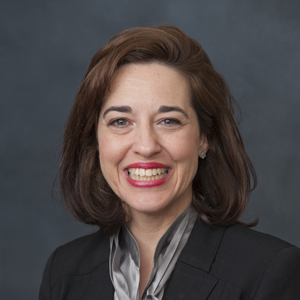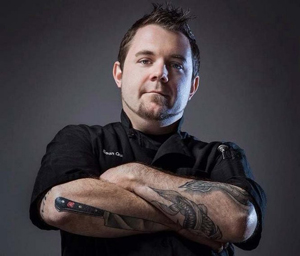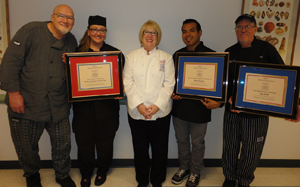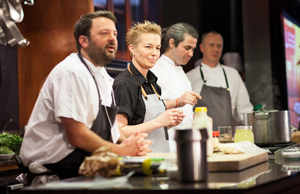Mayo’s Clinic: Helping Students Take Charge—Letter Writing
 One of the most powerful techniques to help students remember what they have learned and apply it to a range of situations is the assignment to write letters to themselves.
One of the most powerful techniques to help students remember what they have learned and apply it to a range of situations is the assignment to write letters to themselves.
By Dr. Fred Mayo, CHE, CHT
Last month, we discussed helping students take charge of their lives by using journals. This month, we will examine the power of personal letter writing as a way to encourage recognition of what students have learned and motivate them to apply it.
Writing
Almost any kind of writing helps students improve their writing and, usually, the clarity of their thinking. Students—and professionals—who cannot write something clear are typically not able to think clearly about the topic or think about it in an organized manner. Therefore, any writing assignment that asks for careful structure and logic will make a difference in a student’s education. Simply regurgitating definitions does not make a difference. Writing research papers, creating project reports, answering essay questions on a test, preparing reaction papers and developing reflection papers all help students organize their thoughts as well as build connection among ideas. Writing assignments also improve students’ recall of information.
Writing Letters to Myself
One of the most powerful techniques to help students and trainees remember what they have learned and apply it to a range of situations outside of the classroom is the assignment to write a letter to self. At the end of a course or specific topic, ask them to write themselves a letter describing what they have learned and how they plan to use it in the near future. When they get the letter some time later, it reminds them of what they learned and what they intended to do with their newly acquired information or skills.

 Delivering cooking demonstrations to the public and select groups not only benefits others by sharing your and your students’ expertise and talent. More importantly, it also builds and promotes your program’s unique brand. And the strongest advice from Chef Weiner? Keep it simple.
Delivering cooking demonstrations to the public and select groups not only benefits others by sharing your and your students’ expertise and talent. More importantly, it also builds and promotes your program’s unique brand. And the strongest advice from Chef Weiner? Keep it simple. Does your program meet the needs of the industry it serves and adequately prepare your students to shine?
Does your program meet the needs of the industry it serves and adequately prepare your students to shine? As U.S. fisheries rebound under strict federal management, more species earn Seafood Watch “green” and “yellow” rankings. Meanwhile, shrimp caught in Louisiana waters remains on the “Avoid” list.
As U.S. fisheries rebound under strict federal management, more species earn Seafood Watch “green” and “yellow” rankings. Meanwhile, shrimp caught in Louisiana waters remains on the “Avoid” list. The Lexington College Board of Directors recently announced the appointment of Professor Kelly O’Leary as president of Lexington College. For the past three years, O’Leary has served on the faculty in the Hospitality Management Department. Since July, she has served as vice president of the college.
The Lexington College Board of Directors recently announced the appointment of Professor Kelly O’Leary as president of Lexington College. For the past three years, O’Leary has served on the faculty in the Hospitality Management Department. Since July, she has served as vice president of the college. Not every chef who steps into the kitchen is ready for the challenge of competition in front of the camera. New England Culinary Institute graduate Sean Quinn (’01) recently beat out the competition on Food Network’s culinary-competition show, “Chopped.” Quinn is also a graduate of C-CAP (Careers through Culinary Arts Program), designed to prepare high-school students for college and career opportunities in the hospitality industry. The scholarship he received through C-CAP allowed him to attend New England Culinary Institute and eventually led him to become executive chef at Chadwick’s in Brooklyn, N.Y., where he has been for seven years.
Not every chef who steps into the kitchen is ready for the challenge of competition in front of the camera. New England Culinary Institute graduate Sean Quinn (’01) recently beat out the competition on Food Network’s culinary-competition show, “Chopped.” Quinn is also a graduate of C-CAP (Careers through Culinary Arts Program), designed to prepare high-school students for college and career opportunities in the hospitality industry. The scholarship he received through C-CAP allowed him to attend New England Culinary Institute and eventually led him to become executive chef at Chadwick’s in Brooklyn, N.Y., where he has been for seven years. The American Personal & Private Chef Association (APPCA) recently honored four chefs with Awards of Excellence at the 2013 APPCA Personal Chef Summit at Stratford University in Baltimore.
The American Personal & Private Chef Association (APPCA) recently honored four chefs with Awards of Excellence at the 2013 APPCA Personal Chef Summit at Stratford University in Baltimore. Why culinary teachers should consider operating a personal-chef business as an adjunct career. It’s not only for the additional income.
Why culinary teachers should consider operating a personal-chef business as an adjunct career. It’s not only for the additional income. At this year’s Worlds of Flavor Conference at the CIA in the Napa Valley, presenting chefs from the best kitchens in Western Europe, Asia, Latin America and the United States stressed developing a sense of place in one’s cuisine.
At this year’s Worlds of Flavor Conference at the CIA in the Napa Valley, presenting chefs from the best kitchens in Western Europe, Asia, Latin America and the United States stressed developing a sense of place in one’s cuisine.